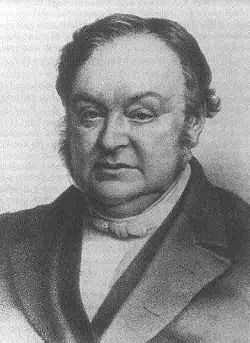Johann Blumhardt

Johann Christoph Blumhardt (1805–1880) was a German Lutheran theologian and the father of Christoph Blumhardt. The elder Blumhardt was educated for the Lutheran ministry and, after several years teaching in a missionary training school, became pastor in Möttlingen, an obscure village of Württemberg, southern Germany. His career was uneventful until, in 1842, he had to deal with one of his parishioners, a young woman, Gottlieben Dittus, who suffered some sort of severe nervous disorder and whose household was visited with strange psychic phenomena. Blumhardt concluded that the case was of a kind with those reported in the New Testament as demon possession. After two months of pastoral care and reverent hesitation, discovering that he had no wisdom or power that could help, he and the girl prayed together: “Lord Jesus, help us. We have watched long enough what the devil does; now we want to see what the Lord Jesus can do.” This prayer-battle continued for almost two years without change—the situation deteriorating, if anything.
Finally came the moment of crisis. At a point when Blumhardt’s prayer and the girl’s trouble were at a pitch, Gottlieben’s sister (who had recently come under demonic attack herself) in a strange voice suddenly uttered the cry, “Jesus Is Victor!” —and it was all over. Gottlieben later became a servant in the Blumhardt household and lived there the rest of her life; but she was never troubled again. Blumhardt understood the voice to be that of the demons who had just been conquered and expelled. There is much in this story at which modern readers inevitably will look askance (as in the story to follow as well); but it must be said that both of the Blumhardts were solid, unflappable characters with nothing of the fanatic about them.
In fact, rather than doing anything to encourage sensationalism or a personality cult centering in themselves, they regularly took deliberate steps to dampen such tendencies. Even so, very strange and wonderful things were claimed to have taken place. Jesus' reported victory in the demented girl immediately triggered what would be nowadays called a 'revival' ... said to have transformed the entire village of Möttlingen and attracted people from miles around. It was claimed there were many healings, conversions of some of the church’s most determined opponents and radical transformations of life and character. Marriages were said to be saved, enemies reconciled and an outpouring of evangelistic zeal.
As might be expected, this sort of goings-on at Möttlingen aroused the criticism of many of the church authorities. Blumhardt’s vision of Christianity was larger than the church institution could manage. Thus, after a few more years at Möttlingen, the pressures toward churchly conformity became so constrictive that Blumhardt gave up his pastorate and, for all intents and purposes, formal connection with the Reformed Church. He moved a short distance away to Bad Boll, where he purchased a vacant resort hotel and made it into something of a retreat center, a place to which people could have recourse for periods of rest, meditation, study, and pastoral counsel—and a place where Blumhardt was free to operate according to God’s leading.
He continued this ministry until his death in 1880, the testimony of his life perhaps best being summed up in a hymn with which he had been inspired at Möttlingen and which remained popular in Blumhardt circles:
- Jesus is victorious Lord
- Who conquers all his foes;
- Jesus ’tis unto whose feet
- The whole wide world soon goes;
- Jesus ’tis who comes in might,
- Leads us from darkness into light.
Both Johann and his son Christoph, while unsystematic, generated enormous pastoral and theological waves. Their ideas on the perennial breaking-in of God's kingdom from the future helped transform Christian eschatology in the twentieth century. They were particularly influential on the work of Karl Barth and Eduard Thurneysen.
Friedrich Zuendel later documented Johann Blumhardt's dramatic life, published for the first time in English as: Pastor Johann Christoph Blumhardt: An Account of his Life" (Cascade Books/Plough Publishing House 2010). Dieter Ising's Johann Christoph Blumhardt--Life and Work (Wipf and Stock 2009) is a thoroughgoing biography which provides historical and theological background for a modern assessment of Blumhardt.
- Blumhardt's Battle
- Action in Waiting (free ebook)
- The Awakening: One Man's Battle with Darkness (free ebook)
- The Hidden Christ:Taking the Gospel into the World (free ebook)
- Jesus is the Victor (free ebook)
- Lift Thine Eyes: Evening Prayers for Every Day of the Year (free ebook)
- Thoughts on Children (free ebook)
- Now Is Eternity: Comfort and Wisdom for Difficult Hours (free ebook)
- Thy Kingdom Come: A Blumhardt Reader (free ebook edited by Vernard Eller)
|